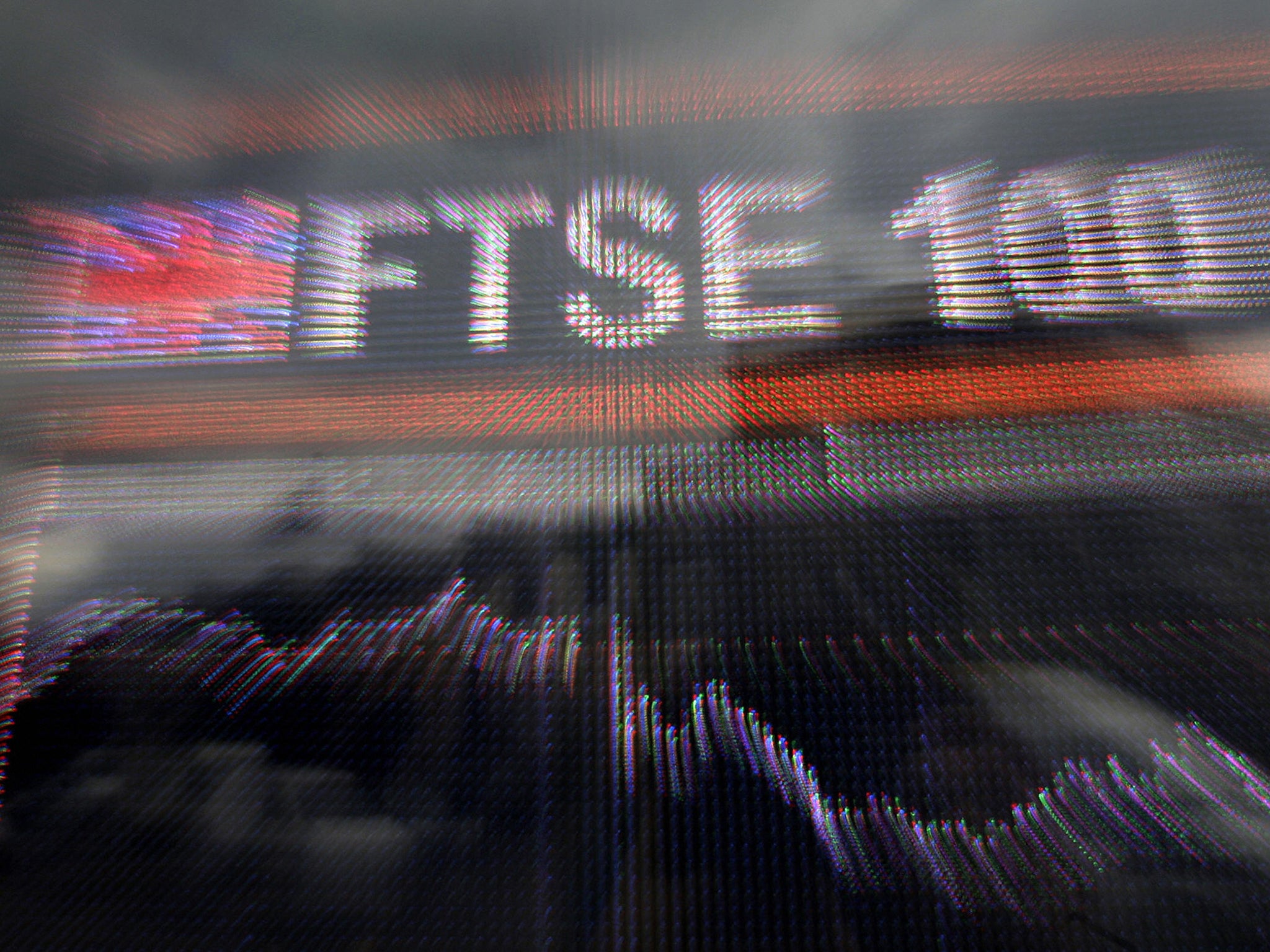FTSE 100 deepens losses following dramatic sell-off across Asia and US
UK benchmark index ends session more than 1 per cent lower

London’s FTSE 100 slipped on Friday after yet another fierce sell-off across US and Asian stocks, fuelled by concerns that global interest rates may rise faster than previously expected.
The UK’s benchmark stock index ended the session down around 1.3 per cent having already suffered a more than 1 per cent fall on Thursday after the Bank of England held interest rates steady at its regular policy meeting but indicated that they may rise again soon.
That sent the pound sharply higher, which in turn weighed on equities. A vast proportion of FTSE 100 revenue is generated outside of the UK meaning that a strong pound tends to send the index lower.
Elsewhere, China’s main stock index fell by just over 4 per cent on Friday after the US’s Dow Jones Industrial Average declined 4.1 per cent on Thursday and the S&P 500 lost 3.7 per cent. Earlier in the week the Dow was hit by a record 1,175-point loss triggered by better than expected US jobs data that sent US bond yields higher as it introduced the prospect of higher inflation.
On Friday, however, the US indices showed signs of tentatively stabilising.
And despite the latest bout of selling, strategists and analysts broadly maintained that Friday's developments were unlikely to foreshadow a fundamental shift in the health of markets or the global economy.
“The good news is that the fundamental outlook for the economy remains unchanged, and positive,” Mark Haefele, of UBS Wealth Management’s global chief investment officer, wrote in a note to clients on Friday morning.
He said that there had been “little evidence of contagion from equities to other asset classes, or to the real economy”.
“Rates, foreign exchange, and credit markets have all remained relatively calm, in spite of the multiyear high equity volatility,” he added.
In Europe, Germany’s DAX and France’s CAC also suffered more heavy losses on Friday. The CBOE Volatility Index, a gauge of market volatility which is commonly referred to as the "fear index", was trading around 30, though, which was significantly lower than the 50 mark which it surpassed on Tuesday.
Subscribe to Independent Premium to bookmark this article
Want to bookmark your favourite articles and stories to read or reference later? Start your Independent Premium subscription today.

Join our commenting forum
Join thought-provoking conversations, follow other Independent readers and see their replies